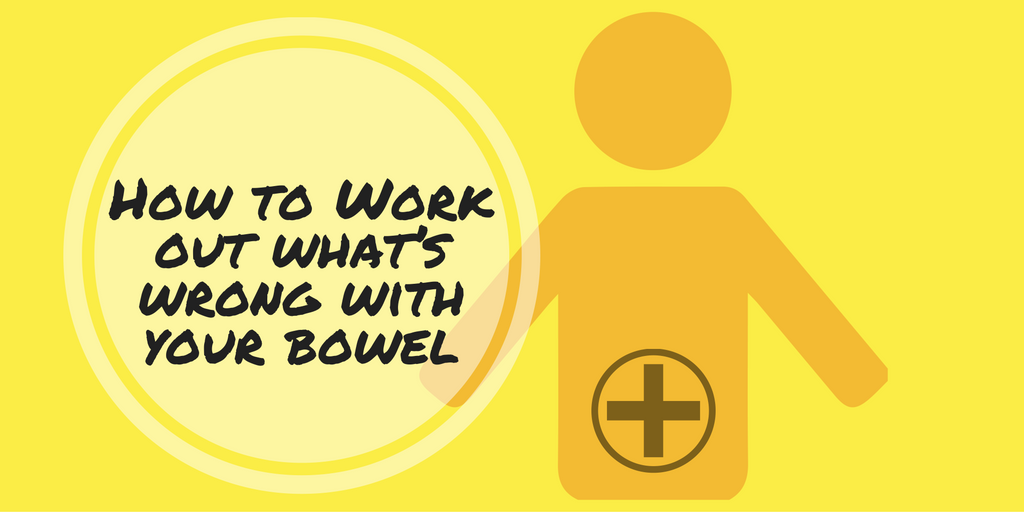
Apart from the red flag symptoms listed in the previous blog, where do you start when trying to work out what’s up with your gut?
You can help yourself and your doctor by:
Keeping a diary of your symptoms.
It helps your doctor make a diagnosis if you can be specific about how long you’ve had your symptoms, what they are, what seems to trigger them or whether they are present all the time, and how much weight you have lost. Keeping a diary of your gut symptoms will help you remember and give your doctor valuable information. One gastroenterologist has told how increasingly patients will photograph or video their bloated stomachs on their mobile phones to document their symptoms.
Not being embarrassed.
People literally die of embarrassment because they can’t get their heads round describing their stools/piles/diarrhoea to their doctors. Get over it. If you don’t like describing what your poo looks like ask your doctor if you can point it out on the Bristol Stool Chart.
Mentioning any family history of gut disease to your doctor.
Some complaints do have a genetic basis so it will be another piece in the jigsaw for your doctor if you can supply details of conditions such as bowel cancer or inflammatory bowel diseases in your immediate family. (Volunteer this if they don’t ask you first.)
Not cutting out food groups on a hunch.
If you do have an autoimmune condition, such as coeliac disease, where the body reacts to gluten and causes bowel symptoms, it’s important you don’t cut out any foods you suspect are to blame, such as bread or breakfast cereals, until your condition has been fully investigated. This is because you may need a gut biopsy to confirm your diagnosis (the villi – fingerlike projections in the gut which absorb nutrients – will be damaged and shrunken if you have coeliac disease) and if you have stopped eating gluten they may have returned to normal, giving a false negative diagnosis.
Being persistent.
If your doctor has told you to eat more bran to help with constipation and your symptoms are getting worse, go back and tell him or her. Whilst eating more fibre helps in a lot of cases of constipation, in up to 30 per cent of cases it doesn’t. (The cause could be slow transit in the gut, in which case too much fibre will make it worse!)
Not self-medicating for the long term.
Obviously it’s fine to buy over-the-counter remedies if your gut problems are short term, but if you are relying on laxatives, antacids or anti-diarrhoea medication in the long term it’s advisable to see a doctor and find out the underlying cause.
Finding reliable sources of information.
There are an awful lot of ‘snake oil’ salesmen out there on the internet, peddling dodgy cures or extreme diets with no good science to recommend them. Charities are good sources of accurate information about managing your condition and their online resources are written in a reader-friendly consumer style. Don’t forget organisations such as NICE (the National Institute for Health and Care Excellence) produce guideline summaries on the management of health conditions written especially for patients, setting out clearly what investigations and treatments are recommended.
For more information and advice on how to manage difficult bowel symptoms and improve gut health problems such as IBS and IBD, read What’s Up With Your Gut, out now.
